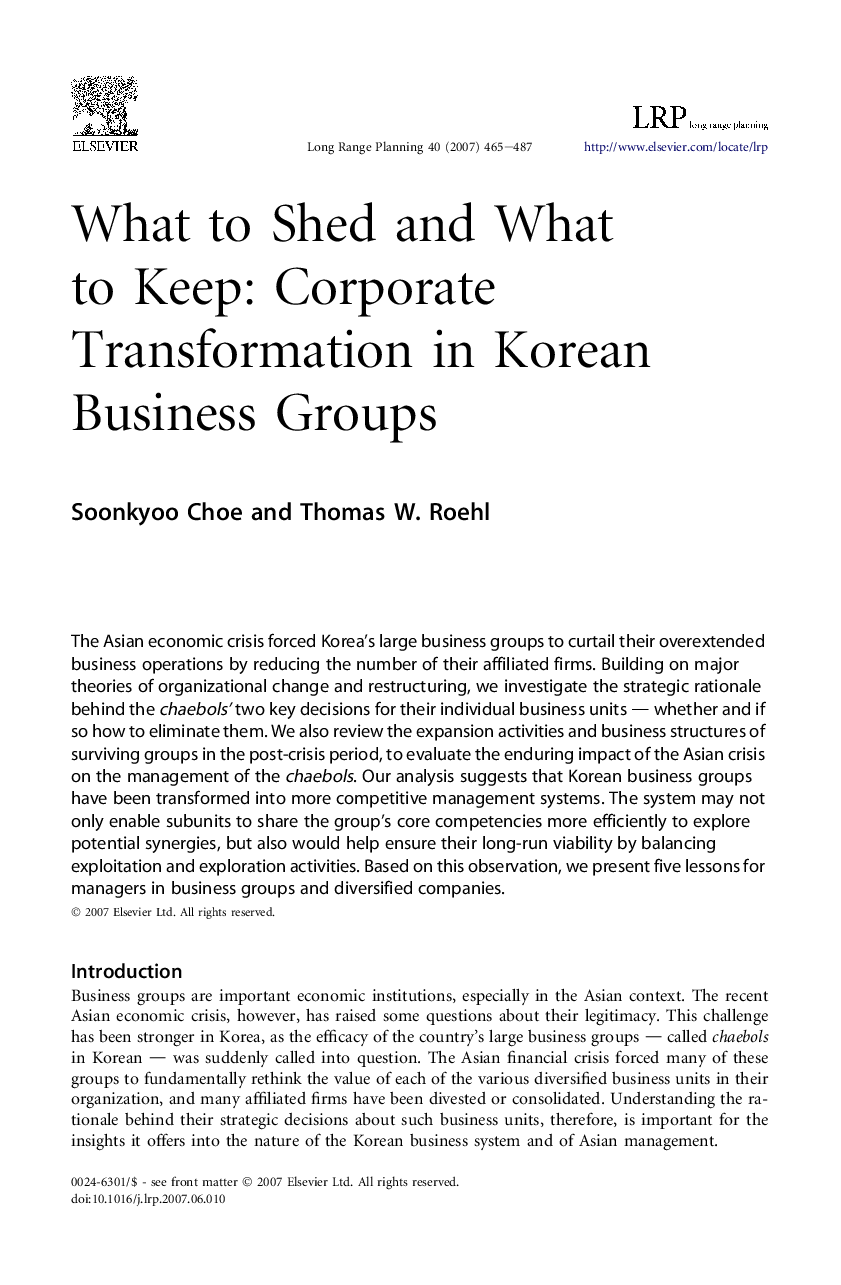| Article ID | Journal | Published Year | Pages | File Type |
|---|---|---|---|---|
| 1021672 | Long Range Planning | 2007 | 23 Pages |
The Asian economic crisis forced Korea's large business groups to curtail their overextended business operations by reducing the number of their affiliated firms. Building on major theories of organizational change and restructuring, we investigate the strategic rationale behind the chaebols' two key decisions for their individual business units — whether and if so how to eliminate them. We also review the expansion activities and business structures of surviving groups in the post-crisis period, to evaluate the enduring impact of the Asian crisis on the management of the chaebols. Our analysis suggests that Korean business groups have been transformed into more competitive management systems. The system may not only enable subunits to share the group's core competencies more efficiently to explore potential synergies, but also would help ensure their long-run viability by balancing exploitation and exploration activities. Based on this observation, we present five lessons for managers in business groups and diversified companies.
